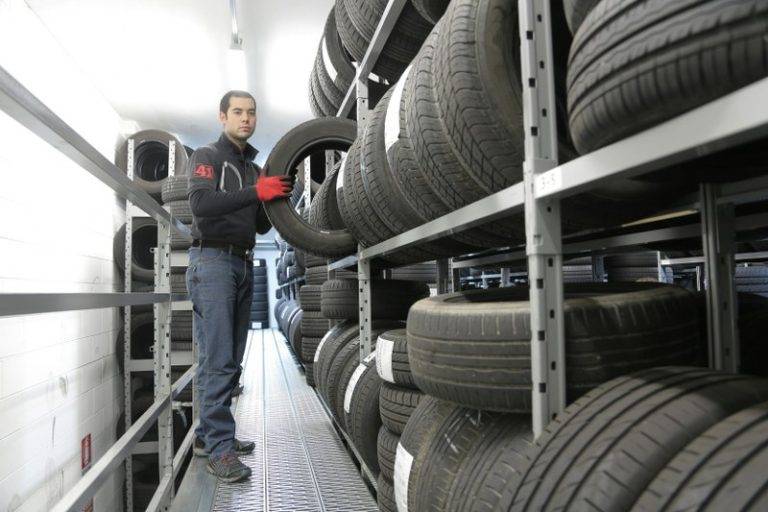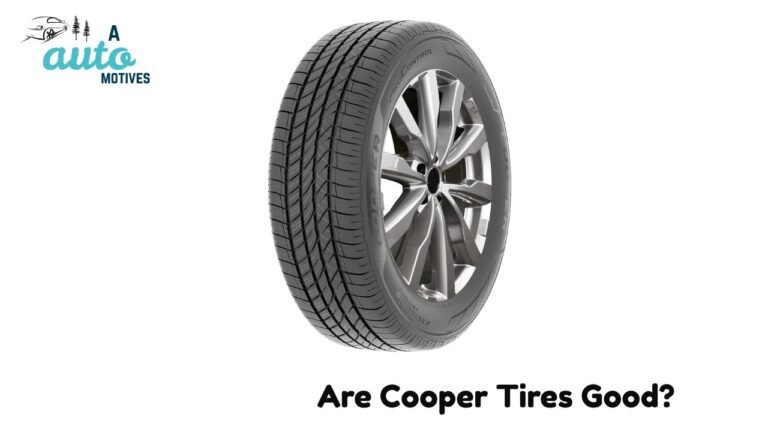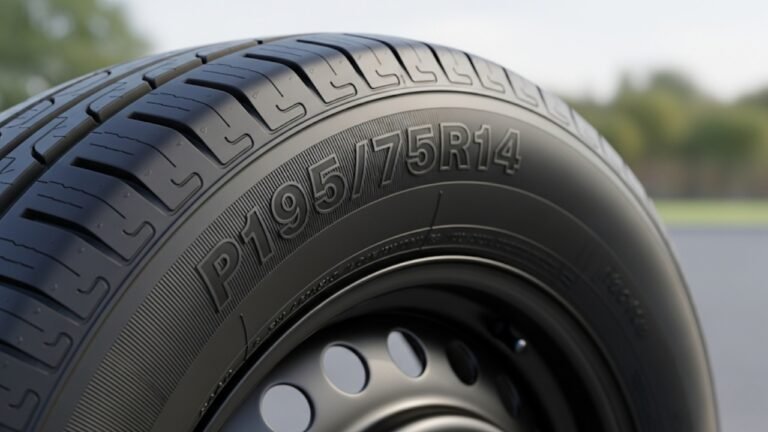Continental Tires vs Cooper Tires: My Honest Verdict
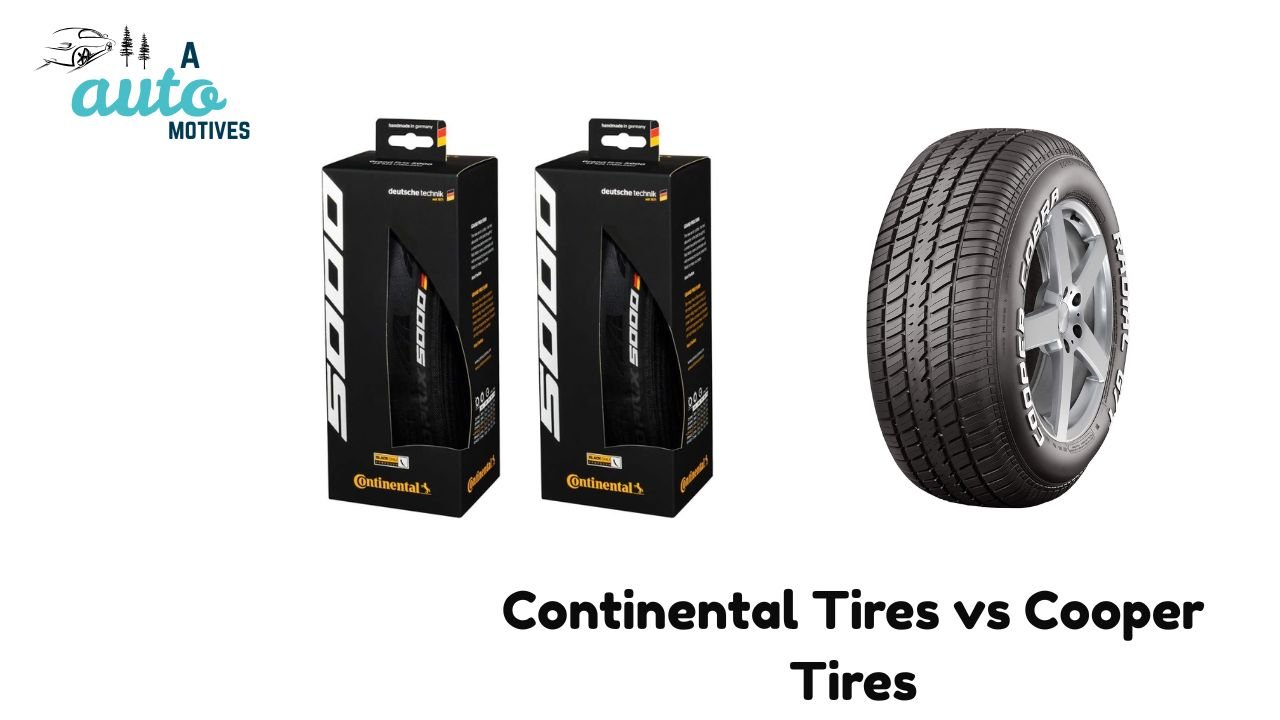
Tires may not be the flashiest part of your car, but trust me—they make all the difference. A good set of tires can turn a stressful, noisy, slippery drive into one that feels confident, smooth, and safe. Over the years, I’ve tested quite a few brands—some premium, some budget-friendly, and some that sit right in the middle. Two names that often come up in conversations with fellow drivers are Continental and Cooper.
Both have their own fan base. Continental is seen as the “refined European brand” that focuses on technology and comfort. Cooper, on the other hand, carries that “American grit” reputation—durable, practical, and usually more affordable. But which one is actually better for your needs? That’s exactly what I wanted to find out.
After years of driving across highways, city streets, icy country roads, and even a few dusty trails, I’ve gathered enough experience with both Continental and Cooper tires to finally give you my honest verdict.
Continental Tire Review
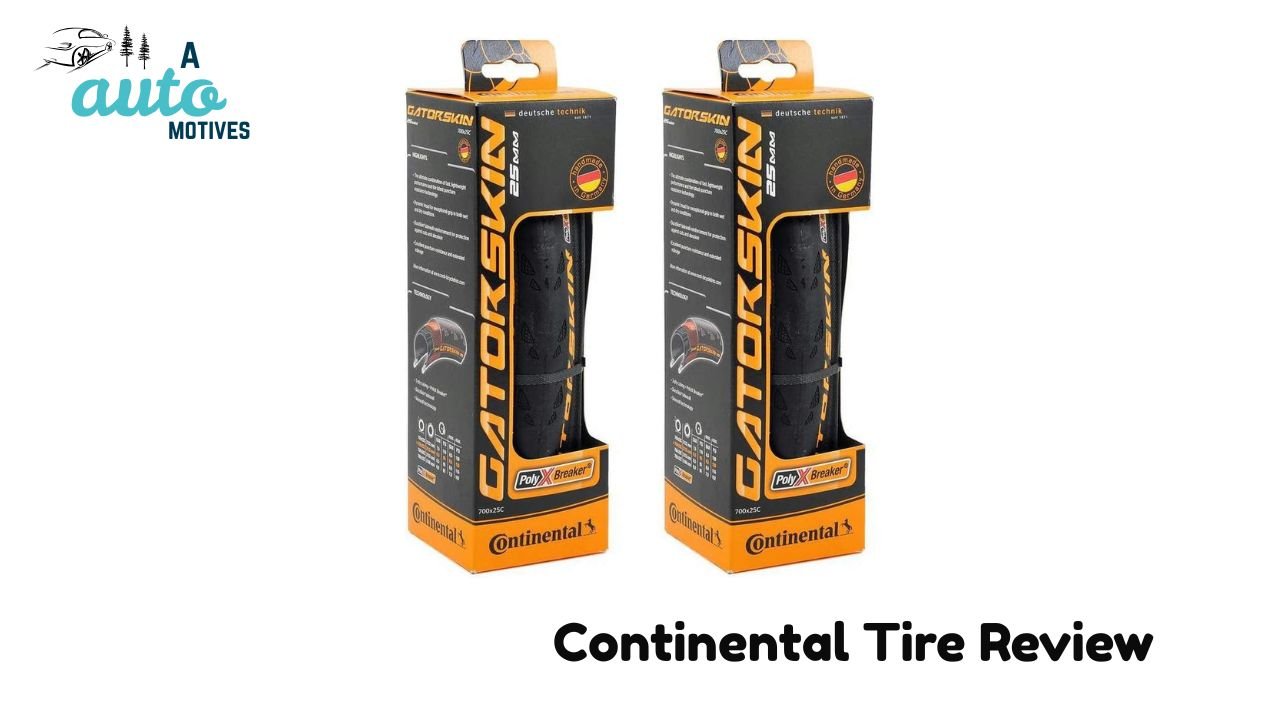
If you’ve ever shopped for tires, you know Continental sits in the premium category. It’s the brand people compare with Michelin, Bridgestone, and Goodyear. But the question is—do they live up to the hype?
From my personal experience, yes, they do—mostly.
Real-World Performance: My Experience with Continental Tires
One of the first times I really appreciated Continental tires was during a snowstorm in Minnesota. My car had Continental ExtremeContact DWS06+ tires on, and I felt surprisingly in control despite the icy mess. The 3PMSF (Three-Peak Mountain Snowflake) rating wasn’t just a marketing badge—it actually worked. Braking distances were shorter, and I didn’t feel that heart-sinking slide that you get with cheaper all-season tires.
Then came a long summer road trip. I swapped to Continental PureContact LS on my SUV, and wow—the difference was night and day. The ride was whisper-quiet, almost like gliding on carpet. I noticed my fuel economy creeping up by 1–2 MPG, which might not sound like much, but over hundreds of miles, it adds up. Road noise was minimal, and long hours behind the wheel felt much less tiring.
In city driving, I tested the ContiProContact. Even after 20,000 miles of stop-and-go traffic, potholes, and wet intersections, the tread looked healthy. It reassured me that these tires aren’t just about comfort—they last too.
Key Features of Continental Tires
-
Excellent Grip: Their tread designs are engineered for strong traction on dry and wet roads.
-
Long Lifespan: Many models have warranties of up to 60,000 miles.
-
Comfort-Oriented: Continental puts real effort into making tires quieter.
-
Fuel Efficiency: Lower rolling resistance means you’ll save gas.
-
All-Weather Options: With plenty of M+S and 3PMSF models, you get year-round confidence.
What I Like
-
Consistently strong traction in rain, dry, and light snow.
-
Ride comfort feels luxurious—quiet, smooth, stable.
-
Tread life is impressive (I’ve seen them go well past 50,000 miles).
-
The boost in fuel efficiency is a nice bonus.
What Could Be Better
-
Price is on the higher side.
-
Not the absolute best in extreme snow and ice.
-
Some high-performance Continental tires are noisier.
-
Certain models can be hard to find depending on your area.
Should You Buy Continental Tires?
If you’re a highway driver who values comfort and stability, or someone who wants tires that will save you a bit of gas over time, Continental is a solid investment. They’re also great for drivers who want to feel confident in rain or during surprise weather shifts.
But if you live in a place with brutal winters (think Minnesota, Canada, or the Rockies), you might want to pair them with a dedicated winter set like Bridgestone Blizzaks.
Final Thoughts on Continental: This is a premium tire brand for a reason. While they aren’t cheap, the blend of comfort, safety, and efficiency makes them worth it for many drivers.
Cooper Tires Review
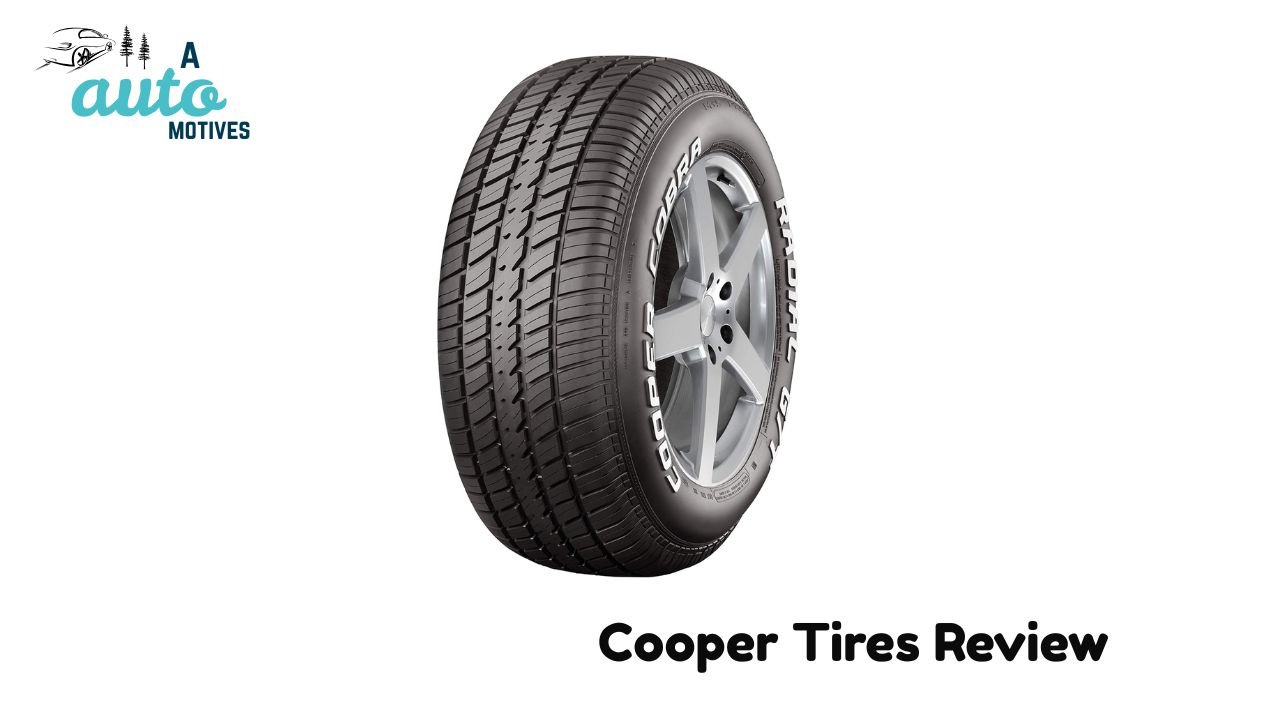
Now, let’s talk about Cooper. If Continental feels like a polished European sedan, then Cooper is more like a sturdy American pickup—reliable, practical, and affordable without too many frills.
Cooper has built a reputation for offering good value without cutting corners, and after putting thousands of miles on their tires, I can say they live up to that reputation.
Real-World Performance: My Experience with Cooper Tires
One winter in Chicago, I mounted Cooper Discoverer True North tires on my SUV. With their 3PMSF rating, they held their ground on slushy, icy roads. Stopping distances felt safe, and cornering didn’t give me that gut-dropping slide you sometimes feel with cheaper tires. They didn’t match the extreme bite of a dedicated winter tire, but for an all-weather set, they impressed me.
On the highway, I tried the Cooper CS5 Ultra Touring on my sedan. At first, I was skeptical since Cooper is often marketed as “value” compared to Continental. But honestly, the ride was smooth, quiet, and fuel-efficient. In fact, I noticed a 2–3 MPG improvement compared to my old worn-out set. That’s a big deal for long commutes.
In the city, the Cooper Evolution Tour handled potholes and stop-and-go traffic surprisingly well. Braking was sharp, wet traction was reliable, and the tires absorbed bumps in a way that made even rough roads tolerable.
Key Features of Cooper Tires
-
Strong Grip Across Conditions: Especially impressive in wet and snowy situations.
-
Long Tread Life: With proper care, you can expect 50,000+ miles.
-
Comfortable Ride: Not as silent as Continental, but better than most budget brands.
-
Fuel Efficiency Gains: Lower rolling resistance on many models.
-
Affordable Pricing: Offers premium-like performance without premium-level prices.
What I Like
-
Excellent value for the money.
-
Good traction in rain, snow, and dry conditions.
-
Comfortable ride quality.
-
Wide range of options for SUVs, sedans, and trucks.
-
Built tough, with strong sidewalls and puncture resistance.
What Could Be Better
-
Some models are not as quiet as Continental.
-
Extreme winter grip is limited compared to dedicated snow tires.
-
A few of their off-road options are noisier.
-
Availability can vary depending on region.
Should You Buy Cooper Tires?
If you’re someone who wants a balance of affordability and performance, Cooper is a fantastic choice. They’re especially popular among SUV and truck owners because of their durability and fair pricing.
They’re not trying to be ultra-luxurious like Continental, but for daily drivers, commuters, and families who want a reliable set of tires without overspending, Cooper really shines.
Final Thoughts on Cooper: A dependable American tire brand that delivers strong performance, long life, and good comfort—without breaking the bank.
Continental Tires vs Cooper Tires: A Detailed Comparison
Now that I’ve shared my real-world experiences with both brands, let’s break it down into a clear head-to-head comparison. This way, you can see exactly where each brand shines—and where they fall short.
Tread Design & Grip
Continental takes the edge when it comes to dry-road traction. Their advanced tread designs and rubber compounds really grip the pavement, which makes them a favorite among performance drivers.
Cooper, however, tends to excel in wet and slippery conditions. Their silica-infused compounds and tread grooves push water away effectively, reducing the risk of hydroplaning.
Verdict: Continental wins for dry handling, while Cooper shines in rainy climates.
Durability & Tread Life
Both brands claim long tread life, often offering warranties up to 80,000 miles. But in real-world use, here’s what I noticed:
-
My Continental tires tended to last longer on highway miles. I’ve had them stretch up to 70,000 miles with consistent rotation.
-
My Cooper tires, while tough, seemed to wear a little quicker on long-distance highway driving, usually closer to 50,000 miles.
That said, Cooper’s sidewalls feel sturdier, which helps if you deal with potholes, gravel roads, or rough city conditions.
Verdict: Continental lasts longer on highways, while Cooper is tougher for city or mixed driving.
Comfort & Noise Levels
Comfort is where Continental really flexes its premium muscle. Many of their models feature noise-reducing technology like ContiSilent foam. On highways, I often forgot the tires were even there—it felt like the car was gliding.
Cooper, while comfortable, doesn’t always match this quietness. On city streets, they’re fine. On highways, some models hum more than I’d like, especially the off-road-oriented ones.
Verdict: Continental wins for a quieter, smoother ride.
Fuel Efficiency
If you care about squeezing a few extra miles out of every gallon, Continental should be your pick. Their low rolling resistance design consistently improved my MPG by 1–2 compared to Cooper.
Cooper isn’t bad in this area, but they seem to prioritize durability over maximum fuel efficiency.
Verdict: Continental is the eco-friendlier, more fuel-efficient choice.
All-Weather & Temperature Performance
Tires face two big challenges: freezing winters and blazing hot summers.
-
In cold weather, both brands perform fairly evenly. Their 3PMSF-rated models give decent snow grip.
-
In extreme heat, Continental has the advantage. Driving through Arizona heat on a set of Continentals felt stable and safe, while my Coopers felt softer, wearing slightly faster.
Verdict: Tie in cold weather, but Continental handles heat better.
Longevity & Maintenance
Both tires require proper care—regular rotations, balancing, and alignment. But one thing I noticed: Cooper tires seem more resistant to punctures and sidewall damage.
For example, when I drove on gravel roads in rural Ohio, my Cooper Discoverers held up better than my old Continentals. If you’re often on rough terrain, Cooper’s extra toughness comes in handy.
Verdict: Continental has a longer tread life, but Cooper is more rugged and damage-resistant.
Price Comparison: Continental vs Cooper
Price is often the deal-breaker. Let’s be real—tires aren’t cheap.
-
Continental sits in the premium category. You’re often paying more upfront, but you’re also buying into advanced technology, comfort, and long tread life.
-
Cooper is usually 15–25% cheaper per tire. For families, truck owners, or budget-conscious drivers, that’s a big saving.
Verdict: Cooper wins on upfront value, while Continental might save you more long-term with fuel efficiency and durability.
Final Recommendation: Continental Tires vs Cooper Tires
So, after thousands of miles and plenty of real-world testing, what’s my honest verdict?
-
Choose Continental if:
-
You want a quiet, smooth ride on highways.
-
You care about fuel efficiency.
-
You’re willing to pay more for comfort and longer tread life.
-
-
Choose Cooper if:
-
You want reliable performance at a lower price.
-
You drive on mixed surfaces (gravel, potholes, city streets).
-
You need durable tires for SUVs or trucks without overspending.
-
-
Skip both brands if:
-
You live in extreme winter climates—go for Bridgestone Blizzaks or Michelin X-Ice.
-
You’re a heavy off-road adventurer—BFGoodrich or Nitto might be better.
-
My Verdict: For comfort and refinement, I’d go Continental. But if budget and durability are top priorities, Cooper is hard to beat. It really comes down to your driving style and road conditions.
FAQs: Continental Tires vs Cooper Tires
1. Which is better overall: Continental or Cooper?
It depends. Continental is better for comfort, fuel efficiency, and premium performance. Cooper is better for affordability and rugged durability.
2. Are Continental tires good in snow?
Yes. Look for models with the 3PMSF rating. They handle snow decently, though dedicated winter tires still outperform them.
3. Do Cooper tires last as long as Continental?
Not usually. Cooper tires are strong but tend to wear a bit faster on highways compared to Continental.
4. Are Cooper tires quieter than Continental?
No. Continental is usually quieter, especially at highway speeds. Cooper can be slightly noisier, especially off-road models.
5. Which brand gives better value for money?
If you’re on a budget, Cooper wins. If you look at long-term costs (fuel efficiency + lifespan), Continental may save you more in the long run.
Final Thoughts
Tires are one of the most underrated parts of driving. They’re the only thing connecting your car to the road. Choosing between Continental and Cooper isn’t about which is “better” overall—it’s about which is better for you.
Continental brings that smooth, premium European feel, perfect for commuters and road trippers who value comfort and MPG. Cooper, on the other hand, is the dependable American workhorse—affordable, rugged, and built to handle real-world conditions.
At the end of the day, whichever you choose, the key is regular maintenance: check your pressure, rotate your tires, and don’t skimp on quality. Because when it comes to safety and driving experience, tires really do make all the difference.



